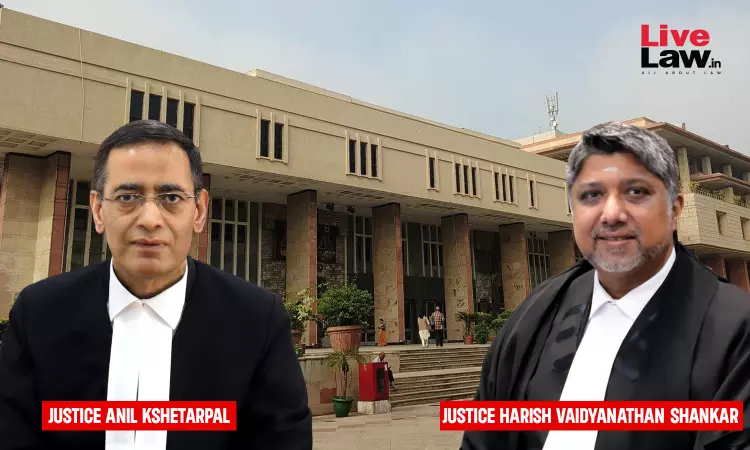Daughter-In-Law's Right To Residence Under DV Act Can't Suspend In-Laws' Right To Live In Their Home Without Distress: Delhi High Court
Nupur Thapliyal
30 Oct 2025 5:45 PM IST

The Delhi High Court has observed that when the residential rights of a daughter in law have been protected under the Domestic Violence Act, the right of senior citizens, being the in-laws, to live in their house without distress cannot be suspended indefinitely.
“While the PWDV Act confers a vital and protective right of residence upon an aggrieved woman, it cannot be construed to extinguish or indefinitely suspend the right of senior citizens to live without distress in their own home,” a division bench comprising Justice Anil Kshetarpal and Justice Harish Vaidyanathan Shankar said.
In a ruling passed today, the Bench said that law must operate in a manner that preserves both safety and serenity of the senior citizens, particularly in cases where multiple generations coexist under the same roof, and familial relationships have irretrievably broken down.
The Court was dealing with an appeal filed by a daughter in law challenging a single judge order granting decree of mandatory injunction in favour of the parents-in-law being senior citizens.
The single judge had directed the daughter in law to vacate the suit property, while providing her alternate accommodation to in terms of Section 19(1)(f) of the Protection of Women from Domestic Violence Act, 2005.
It was the senior citizens' case that they were the absolute owners of the property, having purchased the same out of their own funds, and that their daughter-in-law had been permitted to reside therein purely out of love and affection, without any legal or proprietary rights accruing in her favour. The relationship between their son and the daughter in law had become acrimonious.
Dismissing the daughter in law's appeal, the Bench noted that there existed severe matrimonial discord between the daughter in law and the husband, resulting in multiplicity of proceedings i.e. approximately 25 cases, between various members of the family.
It said that in such a situation, continued cohabitation of all family members under one roof, sharing common spaces such as kitchen, living areas, and entry, was wholly impracticable and inconsistent with peaceful and dignified living.
The Court observed that the in-laws, being senior citizens in the twilight of their lives, cannot be expected to endure constant bickering and hostility within their own home, adding that their right to peace and dignity within their self-acquired property must be given due recognition and protection.
The Court noted that the in laws did not seek to render the daughter in law shelterless but in fact undertook to provide her with independent accommodation by paying monthly rent of Rs. 65,000, along with electricity, water, maintenance, brokerage, and security deposit.
It thus concluded that such an arrangement sufficiently safeguarded the daughter in law's right under Section 19(1)(f) of the PWDV Act.
“The Appellant's contention that the alternate accommodation must be identical in size and configuration to the existing premises is misconceived. The PWDV Act does not guarantee parity of luxury, but adequacy of residence. The right of residence is meant to ensure safety and stability, not to perpetuate occupation of a large family home at the cost of the lawful owners,” the Court said.
It further said that the right of residence under the PWDV Act is not absolute or permanent but is a right of protection and not possession.
The Court observed that the right of senior citizens to live peacefully with dignity in their own property is not subordinate to the said statutory protection under the DV Act. Where both sets of rights intersect, the Court must strike a delicate balance so that neither party's dignity nor security is compromised, it added.
“The impugned directions, providing the Appellant with alternate accommodation at the cost of the Respondents while directing her to vacate the suit property, are consistent with both the spirit and the letter of the PWDV Act, and do not suffer from any legal infirmity warranting interference in Appeal,” the Court concluded that.
Title: X v. Y


